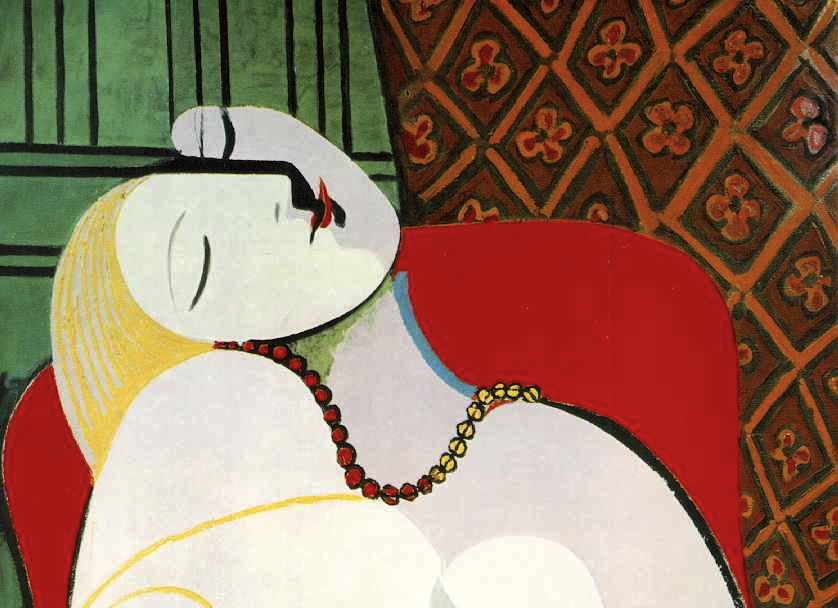There was a time when dreams carried weight. God spoke to people in their sleep, sometimes sending angels into a prophet’s unconscious with words of warning or future wonders.
Now God speaks to us in a better Way (Hebrew 1:1-2). Because we have God’s word and the revelation of his Son, the living Word, we need not look to dreams to discover God’s will. Which leaves us to wonder, what place do dreams have in a Christian worldview today?
Scientists still can’t determine why we dream. Yes, they have theories—dreams are the brain’s attempt to interpret random signals, to reconstruct memories, or to empty unneeded, half-developed ideas. But these remain theories. Even theologians haven’t developed a systematic doctrine of dreams.
Here’s the spiritual concern for me: our inability to exercise self-control (a fruit of the Spirit) over our dreams. It’s hard enough to take every thought captive (2 Corinthians 10:5). What of our dream life? How do Christians deal with shameful dreams? Do we take responsibility? Do we pray it away? Do we repent at first light?
Sure, we have minor say in our dreams. Certain scenes slip in based on fleeting thoughts throughout the day. But our contributions are small. In most cases the brain dreams up its own drama. Sometimes entire worlds, places I’ve never seen. Places that, when I wake, I wish I could someday—some night—revisit. It’s extraordinary, really.
But sometimes our minds drag us on unwanted journeys. The mind is a glorious thing, but it’s not yet glorified. In a single night’s sleep I have killed and been killed, slept with a stranger, and sparked a violent high-speed chase through the streets of an unnamed city. Things better left undreamed. Of course, these are mere moments in my eight-hour voyage to morning, but it worries me that this all comes from within. I’m writer, director and star of my own twisted flicks.
Last night I went to bed with a burden, questioning how someone committed to Christ could sleep through such sordid tales several nights in a row. I fell asleep expecting another descent into the dark and bizarre.
God surprised me.
I dreamed I was in church, leading the congregation in worship through music—something I do every Sunday. It’s true, Dolly Parton was there, but we can overlook that for now. She soon disappeared, as people in dreams often do. Anyway, the pews were packed—some familiar faces, some not so familiar—and we started to sing “In Christ Alone.” I heard every note, every word, as if someone had snuck into my room and slipped headphones over my ears as I slept.
Then we burst into a chorus of “No Condemnation,” a song based on Romans 8:1-2: “There is therefore now no condemnation for those who are in Christ Jesus. For the law of the Spirit of life has set you free in Christ Jesus from the law of sin and death.” Once again, I heard the whole song—even the harmony. Each saint in the ever-growing crowd sang with passion. Eyes closed. Hearts opened. Hands outstretched.
It was something like John’s dream:
After this I looked, and behold, a great multitude that no one could number, from every nation, from all tribes and peoples and languages, standing before the throne and before the Lamb, clothed in white robes, with palm branches in their hands, and crying out with a loud voice, “Salvation belongs to our God who sits on the throne, and to the Lamb!” (Revelation 7:9-10)
And then I woke up.
5:30 a.m. and fresh of the heels of a worship service. And what a profound song choice for one so wearied by the depravity of his dreams! In my mind, in some imagined sanctuary, rang songs to remind me that my hope is in Christ, that there’s no room for wrath in the life of the redeemed.
So I ask again, what’s the use of dreaming? The more I meditate on the Already/Not Yet, the more I think that, in many ways, dreams reflect real life. Not in any New Age sense, but in that we’re truly capable of both wickedness and worship, whether asleep or awake. I see dreams as mirrors of our Christian walk. Extreme examples of what we’re capable of carrying out, from the darkest deeds to the godliest endeavors.
Right now we’re what Martin Luther called simul iustus et peccator: at once a just person and a sinner. In Christ, our redemption is secured but not yet consummated, so we continue to sin even as we’re sanctified. Not everything is as it should be—as it will be—dreams included.
What do you think? Can we worship in our sleep? Does God still invade our dreams? Are we to simply deal with dreams until we die?
This morning I woke with a weight lifted, with an immense love for God, and a reminder that, in Christ, nothing can condemn us—not even our dreams. I want more dreams like that—dreams like John’s. Dreams of worship, singing with the saints, and sweet communion with Christ.
Those are dreams worth coming true.





14 Comments
Leave your reply.